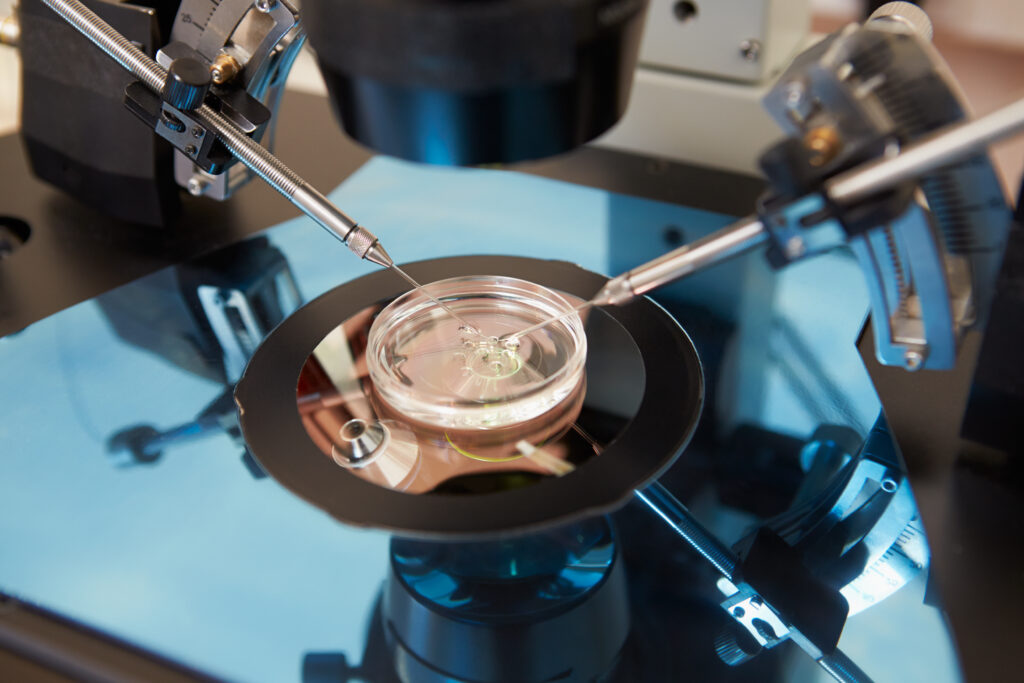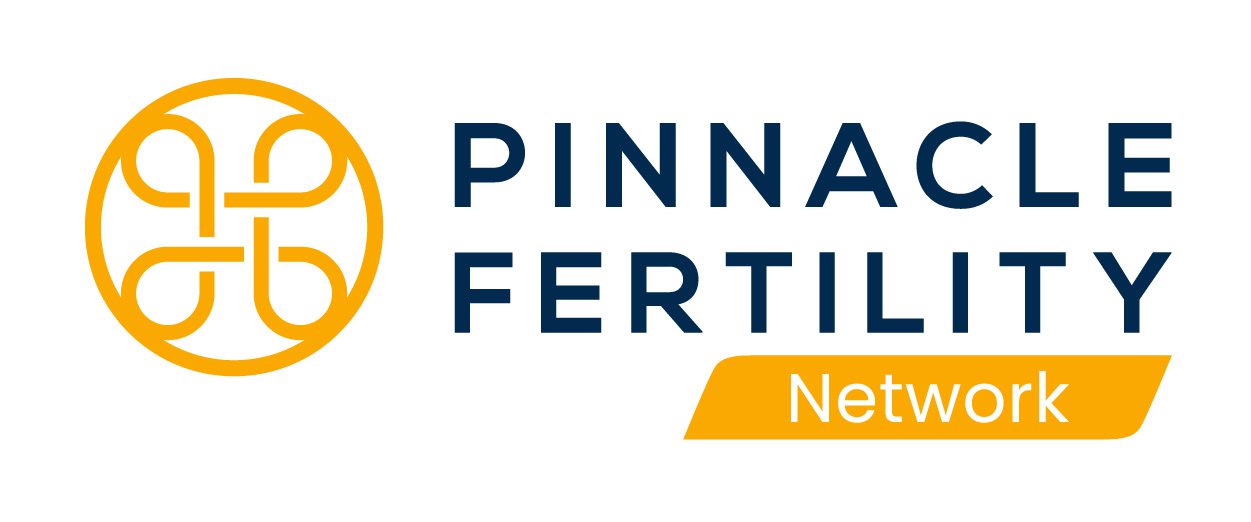Step into your fertility journey with confidence. We’re here with guidance and support to help you take the next step.
Where Parenthood Journeys Begin
Whether you’re just starting out or already down the path, we offer a complete range of fertility treatments designed around your needs. With expert guidance, leading-edge care, and unwavering support, we’re here for you—one informed step at a time.
In Vitro Fertilization (IVF)
IVF is a highly effective fertility treatment that helps individuals and couples achieve pregnancy when natural conception isn’t an option. The process involves retrieving eggs, fertilizing them with sperm in a lab, and transferring a healthy embryo into the uterus.
We know IVF is more than a medical procedure—it’s an emotional journey. Our expert team provides personalized care, using advanced technology and tailored protocols to maximize success.
Learn About IVF
Intrauterine Insemination (IUI)
IUI is a simple, minimally invasive fertility treatment that increases the chances of conception by placing specially prepared sperm directly into the uterus during ovulation. This procedure helps sperm reach the egg more easily, making it a great option for individuals and couples facing mild fertility challenges, unexplained infertility, or those using donor sperm.
Our experienced team customizes each IUI cycle to your unique needs, carefully monitoring ovulation timing to optimize success. The process is quick, typically painless, and requires little to no downtime.
IUI is often a first step for those exploring fertility treatments, offering an effective and affordable option before considering more advanced procedures like IVF.

Egg Freezing
Egg freezing is a fertility preservation option that allows individuals to safeguard their reproductive future. This process involves stimulating the ovaries, retrieving mature eggs, and freezing them for future use. Whether you’re focusing on your career, not ready to start a family, or facing medical treatments that could impact fertility, egg freezing provides peace of mind and flexibility.
Our expert team tailors the process to you, utilizing advanced freezing techniques like vitrification to preserve egg quality and maximize survival rates. We offer comprehensive support from initial fertility assessments to storage and future use planning. Egg freezing empowers you to take control of your reproductive timeline.
Learn About Egg Freezing
Fertility Medications
Fertility medications are often the first step in treating infertility, helping to regulate ovulation, improve egg quality, or support other fertility treatments like IUI and IVF. These medications can stimulate the ovaries to produce mature eggs, balance hormone levels, or enhance uterine conditions for implantation.
Fertility medications can significantly increase your chances of conception, either on their own or as part of a broader treatment plan.
Learn About Fertility Medications
Male Infertility
Male infertility is a common factor in conception challenges, contributing to approximately 30-50% of all infertility cases. It can result from low sperm count, poor motility, abnormal morphology, hormonal imbalances, genetic factors, or structural issues. Fortunately, many cases are treatable with the right approach.
Treatment options range from lifestyle changes and medication to advanced procedures like IUI, IVF, or ICSI.
Learn About Male Infertility
Cancer Fertility Support
A cancer diagnosis doesn’t have to mean the end of your family-building dreams. Treatments like chemotherapy, radiation, and surgery can affect fertility, but proactive preservation options can help protect your future.
Our fertility specialists provide urgent consultations and personalized preservation plans, including egg, sperm, and embryo freezing. We collaborate with oncology teams to ensure safe, timely care—helping you focus on treatment while keeping your future family options open.
Learn About Cancer Fertility Support
Book Your Appointment Today
Schedule a ConsultationCare Without Compromise
We believe everyone deserves the best fertility care. That’s why we pair cutting-edge treatment options with flexible financial support—so you can move forward without compromising.

Affording Care

Leading Fertility Advancements
Common Fertility FAQs
During your first fertility consultation, you’ll meet with a specialist to review your medical history, lifestyle, and any previous attempts at conception. While many initial consultations are conducted virtually, in-person appointments are also available. Your doctor may recommend diagnostic tests, such as blood work or ultrasounds, to assess your reproductive health. Based on the findings, a personalized care plan will be created, and the next steps will be outlined. This visit is also an opportunity to ask questions and connect with the team dedicated to supporting you throughout your journey.
Insurance coverage for fertility treatments varies based on your specific plan and state regulations. Some policies provide full or partial coverage for diagnostic testing and treatments, while others may have limited or no benefits for fertility care. To understand what your plan covers, we recommend reviewing your policy details and reaching out to your insurance provider. Our financial team is also available to help you navigate your benefits and explore alternative financing options if needed.
Your doctor may recommend the following tests to assess reproductive health:
- Blood Tests: To check hormone levels and ovarian reserve.
- Ultrasound: To evaluate ovarian health and uterine structure.
- Semen Analysis (for male partners): To assess sperm count, motility, and morphology.
- Hysterosalpingogram (HSG): If needed, to check if fallopian tubes are open.
- Additional Tests: Based on your medical history, such as genetic screening or thyroid function tests.
These tests help your care team identify potential factors affecting fertility and guide your treatment plan.
- Gather Medical Records: Bring any relevant medical records, including details of previous fertility treatments, surgeries, or lab results.
- Know Your Health History: Be ready to discuss your personal and family health history, menstrual cycles, lifestyle habits, and prior attempts to conceive.
- Prepare Questions: Write down any questions or concerns you have for the specialist to make the most of your time during the appointment.
- Bring a Support Person (if applicable): If possible, bring your spouse, partner, or trusted support person to the appointment. Having someone with you can help ensure you don’t miss any important details.
- Check Insurance Coverage: Review your insurance benefits beforehand and bring any necessary documentation related to coverage for fertility services.
Yes, partners are welcome and encouraged to attend your first fertility appointment. Having your partner there can provide additional support and ensure both of you are involved in discussions about your fertility journey. It’s also helpful for your care team to gather a complete medical history from both of you, if applicable.

Find Your Clinic
With 40+ locations nationwide, discover expert fertility care close to home. Connect with leading professionals who will guide you on your path to parenthood.





